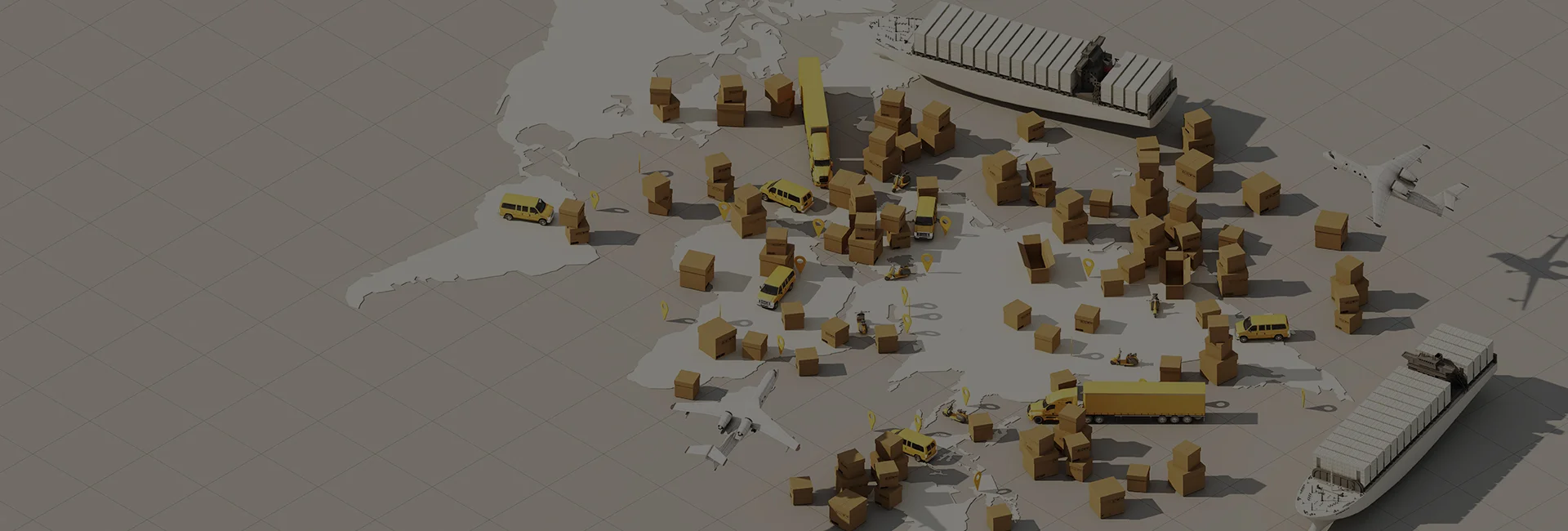- May 15, 2023
International moving can be an exciting and life-changing experience, but it can also be overwhelming and challenging. Moving to a new country involves a lot of planning, research, paperwork, and cultural adjustments. Therefore, it is crucial to prepare thoroughly for a successful international move. In this blog, we will discuss the essential steps to prepare for an international move, from planning and research to settling in and post-move tasks.
Planning and Research
Planning and research are crucial steps in preparing for an international move. Moving to a new country involves a lot of logistics, and proper planning can help you avoid unnecessary stress and complications. Here are some tips to help you prepare for your international move:
Research the destination country’s culture, customs, and laws:
Moving to a new country means adapting to a new culture and way of life. It’s important to research the destination country’s culture, customs, and laws to prepare yourself for the new environment. This can include learning about the local language, social norms, and customs. It’s also important to research the laws and regulations of the country, such as visa requirements, customs regulations, and tax laws. You can research online, read books or travel guides, or talk to people who have lived in the country to get a better understanding of what to expect.
Create a moving timeline:
Creating a moving timeline is an important part of the planning process. Your timeline should include all the tasks you need to complete before your move, such as researching moving companies, obtaining visas and passports, packing, and shipping. Creating a timeline can help you stay organized and on track, and ensure that you don’t forget any important tasks.
Choose a reliable moving company:
Choosing the right moving company is essential to ensure a smooth and stress-free move. Look for a company that has experience with international moves, good customer reviews, and proper licenses and insurance. You should also ask for quotes from several moving companies to compare prices and services. A reliable moving company will help you with all aspects of your move, from packing and shipping to customs clearance and delivery.
Consider your budget:
Moving internationally can be expensive, and it’s important to consider your budget when planning your move. Make sure to get quotes from several moving companies and compare prices to find the best deal. You should also factor in the cost of visas, passports, and other necessary documents, as well as any additional expenses you may incur, such as temporary housing or storage.
Prepare for cultural differences:
Moving to a new country means adapting to a new culture, and it’s important to prepare yourself for cultural differences. This can include learning the local language, customs, and social norms. You can also talk to expats or join expat groups to get advice and support from people who have gone through a similar experience. Being open-minded and respectful of the local culture can help you adjust more quickly and enjoy your new surroundings.
Paperwork and Documentation
Handling paperwork and documentation is a crucial aspect of international moving. Without proper documentation, you may face delays, fines, or even have your items confiscated. Therefore, it is essential to take the necessary steps to ensure that all paperwork is in order. Here are some tips to help you handle paperwork and documentation for your international move:
Obtain visas and passports:
The first step in obtaining visas and passports is to check the requirements for your destination country. Each country has its own visa and passport requirements, and it is crucial to ensure that your documents are up-to-date. Some countries may require specific vaccinations, so make sure to check the health requirements as well. It is important to start the visa and passport application process early as it can take several weeks or even months to obtain them.
Have a detailed inventory of all items being moved:
Customs officials will require a detailed inventory of all items being moved. Therefore, it is important to create a list of all items you plan to move, including their value and condition. Make sure to label all boxes and keep a record of their contents. This will help with customs clearance and insurance purposes.
Prepare important documents:
In addition to visas and passports, you may need to prepare other important documents such as medical records, insurance policies, and school transcripts. It is important to keep these documents in a safe place and make copies to carry with you. If possible, try to obtain certified translations of documents in the local language of your destination country.
Research import regulations:
Each country has its own import regulations, and it is essential to research these regulations before you move. Some countries have strict regulations on the import of certain items such as firearms or medications. It is also important to note that some items may be prohibited altogether, so make sure to check the customs regulations in advance.
Consider hiring a customs broker:
A customs broker can help you navigate the customs process and ensure that all required paperwork is in order. They can also provide advice on customs regulations and help you avoid potential issues or delays.
By taking the time to handle paperwork and documentation properly, you can avoid potential delays and ensure that your move goes smoothly. It is always better to be over-prepared than under-prepared when it comes to international moving.
Packing and Shipping
Packing and shipping for an international move can be a daunting task. It requires careful planning and execution to ensure that all your belongings arrive at your destination in good condition. Here are some additional tips on how to pack and ship for an international move:
Use high-quality packing materials:
Using high-quality packing materials is essential to ensure the safe transportation of your belongings. Invest in sturdy boxes, bubble wrap, packing paper, and packing tape. Do not skimp on packing materials, as this can lead to damage during transportation.
Pack fragile items with care:
Fragile items such as glassware, artwork, and electronics require extra care when packing. Use bubble wrap, packing paper, and packing peanuts to protect them during transportation. Label these boxes as “fragile” to ensure that they are handled with care.
Take care of valuable items:
Valuable items such as jewelry, important documents, and sentimental items should be packed separately and carried with you during the move. Make sure that you have adequate insurance coverage for these items.
Choose the right shipping method:
As mentioned earlier, air freight is faster but more expensive, while sea freight is slower but more affordable. Choose the shipping method that best fits your needs and budget. Keep in mind that air freight is ideal for time-sensitive items, while sea freight is suitable for bulkier items.
Consider customs regulations:
Each country has its own customs regulations, which you must comply with when shipping your belongings. Make sure that you have all the necessary documentation, including customs declarations, and comply with any restrictions or regulations regarding the items you are shipping.
Keep track of your shipment:
Keep track of your shipment and ensure that you are aware of its progress. Your moving company should provide you with a tracking number that you can use to monitor your shipment. Make sure to keep a copy of this number and follow up regularly with the moving company for updates.
By following these tips, you can ensure that your belongings are properly packed and shipped for your international move. Remember to work closely with your moving company and keep them informed of any special requirements or concerns you may have.
Adjusting to a New Culture
Adjusting to a new culture can be challenging, especially if you are not familiar with the language, customs, and social norms. However, with proper preparation and an open mind, it can also be a rewarding experience. Here are some tips on how to prepare for cultural differences and ease the transition:
Do your research:
Before you move, take some time to research the local culture and customs of your destination country. Learn about the history, religion, social norms, and etiquette. This will help you understand what to expect and how to behave in different situations.
Learn the language:
Learning the local language can help you communicate better with the locals and make new friends. You can take language classes before you move or use language learning apps to practice. Even if you only learn a few key phrases, it can make a big difference.
Embrace new experiences:
Keep an open mind and embrace new experiences. Try the local cuisine, attend cultural festivals, and participate in community activities. This can help you learn more about the local culture and make new friends.
Join expat groups:
Joining expat groups can be a great way to meet other people who are also adjusting to a new culture. These groups often organize social events and activities, which can help you make new friends and feel more connected to the local community.
Build a support network:
Building a support network of friends and family can help you deal with culture shock and homesickness. Stay in touch with your loved ones back home and make an effort to meet new people in your new community.
Be patient:
Adjusting to a new culture takes time, so be patient with yourself. Don’t be too hard on yourself if you make mistakes or feel overwhelmed. Give yourself time to adjust and enjoy the journey.
Settling in and Post-Move Tasks
After you have arrived in your new country, there are still many tasks to complete before you can fully settle in. Here are some tips on how to tackle these tasks and make the most of your new home:
Unpack and organize:
Unpacking and organizing your belongings can be a daunting task, but it’s an important step in making your new home feel comfortable and familiar. Start by unpacking essentials like bedding, toiletries, and kitchen items, and then work your way through the rest of your belongings.
Register for utilities and services:
Once you have unpacked, you will need to register for utilities and services like electricity, water, internet, and phone. Check with your landlord or real estate agent to find out how to register for these services in your new area.
Obtain a driver’s license:
If you plan to drive in your new country, you will need to obtain a local driver’s license. Check with the local driving authority to find out what the requirements are and how to apply.
Set up a bank account:
Setting up a local bank account can help you manage your finances and avoid international transaction fees. Research local banks and find out what the requirements are for opening an account.
Deal with culture shock:
Even if you have prepared extensively, you may still experience culture shock and homesickness. It’s important to take care of your mental health and seek support if you need it. Joining local groups, seeking out counselling services, and practicing self-care can all help you manage culture shock.
Conclusion:
Moving to a new country can be an exciting but challenging experience. Thorough preparation is key to a successful international move. In this article, we have discussed the importance of planning and research, paperwork and documentation, packing and shipping, adjusting to a new culture, and settling in and post-move tasks. By following these tips and seeking the assistance of a reliable international moving company like Earthrelo, you can make your international move a smooth and successful transition. Remember to keep an open mind, be patient, and enjoy the journey.





